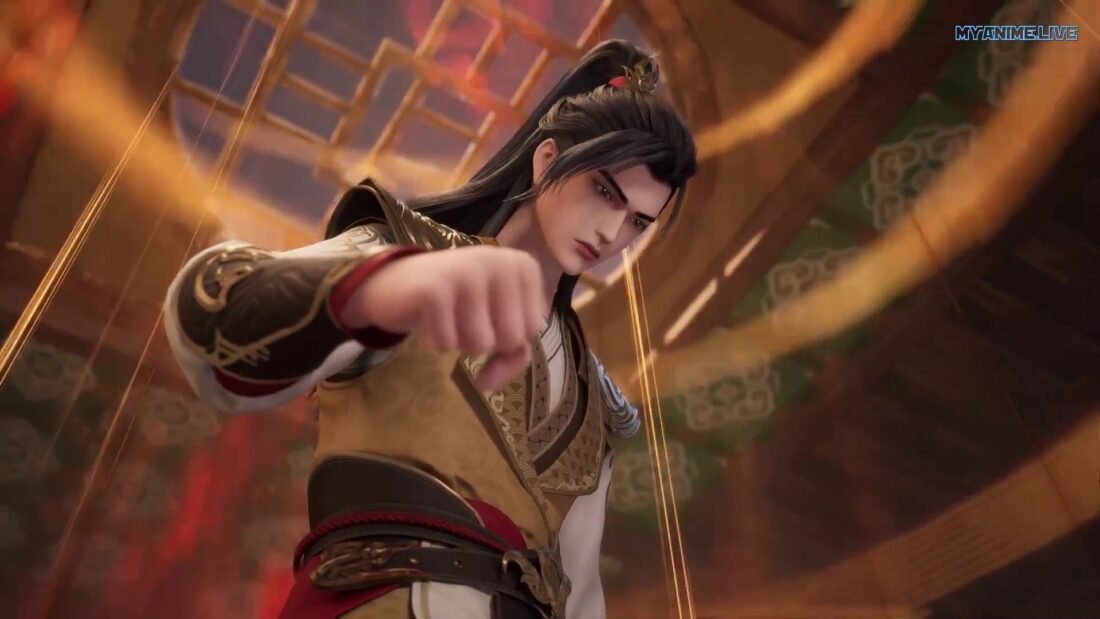Watch Wu shen zhu zai – Martial Master episode 445 english sub now and enjoy the fiery battles and thrilling details, beautiful scenes to the eyes that you won’t forget. Don’t forget to like and share to support Myanime live!


Watch Wu shen zhu zai – Martial Master episode 445 english sub now and enjoy the fiery battles and thrilling details, beautiful scenes to the eyes that you won’t forget. Don’t forget to like and share to support Myanime live!

How useful was this post?
Click on a star to rate it!
Average rating 0 / 5. Vote count: 0
No votes so far! Be the first to rate this post.
Exploring the Rising World of Chinese Anime (Donghua)
When most people think of anime, they immediately associate it with Japan. But over the last decade, Chinese anime—also known as donghua (动画)—has been making waves globally. With high-quality animation, deep storytelling, and culturally rich themes, donghua is steadily gaining a fanbase outside of China and carving its own niche in the world of animated entertainment.
Donghua simply means "animation" in Mandarin Chinese, but internationally, the term refers specifically to animated series and films produced in China. While it may resemble Japanese anime in visual style, donghua often carries distinct storytelling, folklore, and values rooted in Chinese culture, history, and mythology.
One major reason donghua is catching on is the improvement in animation quality. Studios like Haoliners, B.CMAY Pictures, and Tencent Penguin Pictures have significantly elevated the art style and fluidity of their productions. Shows like The King's Avatar, Mo Dao Zu Shi (The Grandmaster of Demonic Cultivation), and Heaven Official’s Blessing have received critical acclaim for their storytelling and animation.
Another factor is the diversity of genres. While Japanese anime often focuses on high school life, fantasy battles, or slice-of-life stories, Chinese anime taps into its own vast reservoir of historical dramas, xianxia (a genre involving cultivation, immortality, and martial arts), sci-fi, and even political thrillers.
Moreover, streaming platforms like Bilibili, iQIYI, and Tencent Video have made donghua accessible to a broader audience. Many series now come with English subtitles, and some even have official English dubs, making it easier for non-Chinese speakers to dive into the stories.
One of the most fascinating parts of donghua is its connection to Chinese culture. Viewers are often introduced to traditional Chinese music, historical clothing (Hanfu), philosophies like Taoism and Confucianism, and legendary tales adapted into fresh narratives. This cultural depth adds richness and authenticity that sets it apart from other animation styles.
As global audiences continue to diversify their entertainment choices, Chinese anime is well-positioned to grow even further. With increasing investment, international collaborations, and fan translations on the rise, donghua could soon become a staple for animation lovers everywhere.
Q1: Is Chinese anime the same as Japanese anime? No, while they share some visual similarities, they are produced in different countries and reflect distinct cultural influences. Donghua often focuses more on Chinese history, legends, and values.
Q2: Where can I watch Chinese anime? Popular platforms include Bilibili, Tencent Video, iQIYI, and YouTube. Some titles are also available on Netflix and Crunchyroll with subtitles or dubs.
Q3: What are some good Chinese anime for beginners? Great starting points include The King's Avatar, Scissor Seven, Fog Hill of Five Elements, and Heaven Official’s Blessing.
Q4: Do Chinese anime have English subtitles or dubs? Yes, many popular donghua titles are available with English subtitles, and an increasing number are also being dubbed.
Q5: How is donghua different from manhua? Donghua refers to animation, while manhua is Chinese comic art, similar to Japanese manga.
